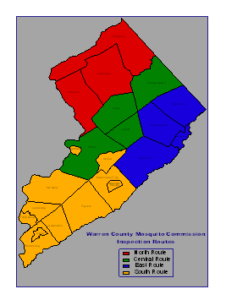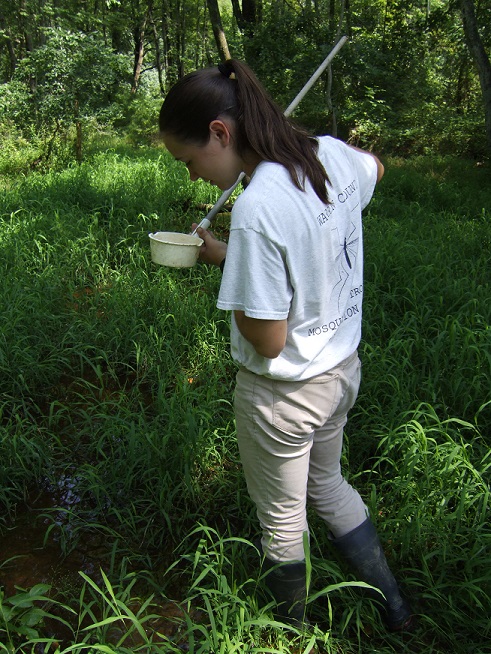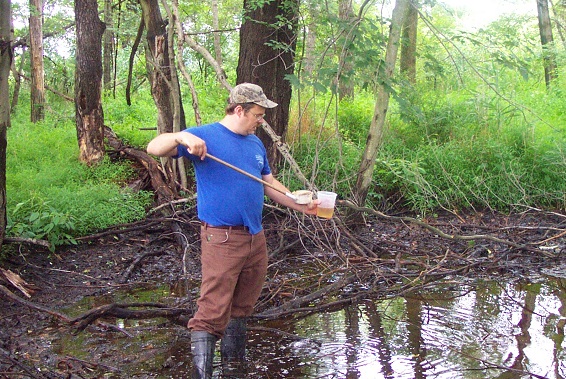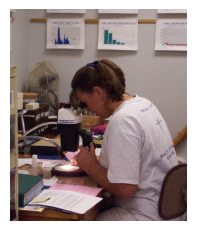Inspections
 Inspections of known mosquito breeding areas are conducted throughout the year. The active mosquito season where larval mosquitoes can be readily found in the stagnant water runs from February/March through October/November. During this time larval (immature) mosquitoes can be found in standing water at many sites and will require action to control the problem.
Inspections of known mosquito breeding areas are conducted throughout the year. The active mosquito season where larval mosquitoes can be readily found in the stagnant water runs from February/March through October/November. During this time larval (immature) mosquitoes can be found in standing water at many sites and will require action to control the problem.
The Commission has divided Warren County into 4 districts for its routine inspections. This distributes the nearly 1,300 known mosquito breeding sites into manageable groups. In the heat of the summer when mosquito larvae develop quickly in the warm water, there is only a period of 5 to 7 days from the time a rainfall event floods mosquito production areas for mosquitoes to go through their life cycle from egg to adult. Routes are developed for each of these districts with directions to each site and a description of each of the larval habitats to allow for efficient inspections of these sites and employment of appropriate control measures in the least amount of time.


Inspections being done of known mosquito breeding habitat using a standard dipper. Mosquito larvae/pupae are easily visible against the white dipper and the dipper also aids in taking samples for identification purposes.

The route inspections take place almost continuously from March through October. During the months of November through February sites are still inspected with relation to water management activities, fish population monitoring as well as access brushing and route modification (incorporation of new sites identified earlier in the year and revision of directions and site descriptions into the routes as necessary).
If a complaint is received and an area is inspected for the presence of adult mosquitoes, the staff member responsible for the district in which the complaint falls, will look for adult mosquitoes during the site visit and/or place a portable light trap at the site for a 12-24 hour collection.
When site inspections take place, collections of larval and or adult mosquitoes are made and brought back to the office (lab) for identification to document the species and numbers present at any given area. These inspections and surveillance techniques as well as the identification process generates and justifies the short term control measures, aids in the assessment of the disease and nuisance potential of the mosquitoes in any given area and helps to guide the long term control strategy as well.
Most Important Larval Habitat Types in Warren County, New Jersey
Habitat types ranked 1-7, 1 being most important, 7 being least important in Warren County:
- Fresh floodwater
- Woodland pool
- Freshwater swamp
- Artificial container and treeholes
- Snow pool
- Polluted water
- Salt marsh (n/a)
